Do You Need Permit For Garden
13 DIY Home Improvements You May Not Know You Need a Permit For
If you're getting ready to start a DIY project, then chances are you've been going through a mental or physical checklist to make sure you've covered everything that's required. But, did you know that even simple projects can sometimes require a building permit? What follows is a list of common tasks that require permits in many locations. Because permit requirements are determined on a municipal basis, you'll need to check with your local building department about what applies to you.
1 / 13
 romakoma/Shutterstock
romakoma/Shutterstock
Fences
Many people assume that they can do something as straightforward as a new fence without a permit. In some cities that's true. However, municipalities require permitting and prebuild evaluations before starting work. Some specify requirements about height, material or aesthetics of the fence while others simply want to make sure that the fence posts are seated properly.
Check these pro tips on how to dig a posthole the right way and make sure your job doesn't stall out at the footer inspection.
ⓘ
2 / 13
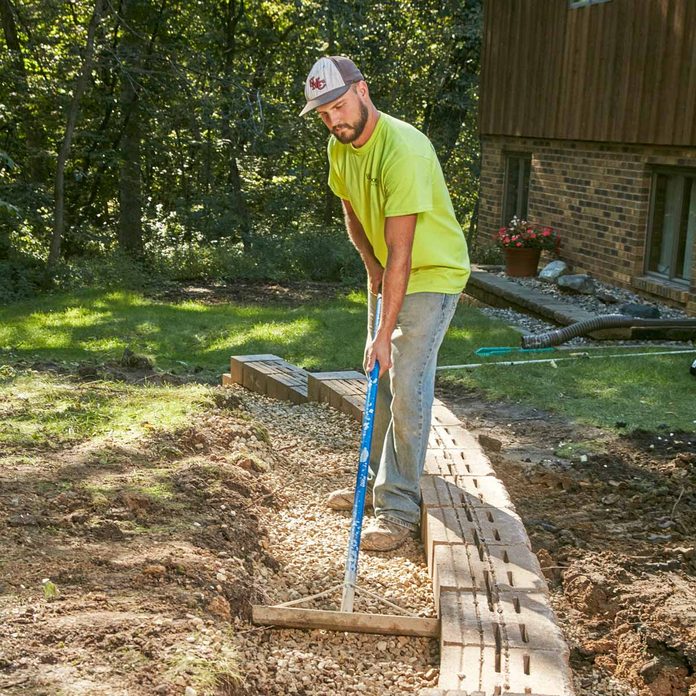 Family Handyman
Family Handyman
Retaining Walls
Much like fences, a retaining wall often present a fairly simple build. In fact, many DIYers can set up a retaining wall over a weekend. But keep in mind that some municipalities require pulling the permit before starting work on any hardscaping over a certain size.
The inspector often looks to account for water drainage planning and that you won't flood your neighbors yard or set yourself up for a collapse down the road.
3 / 13
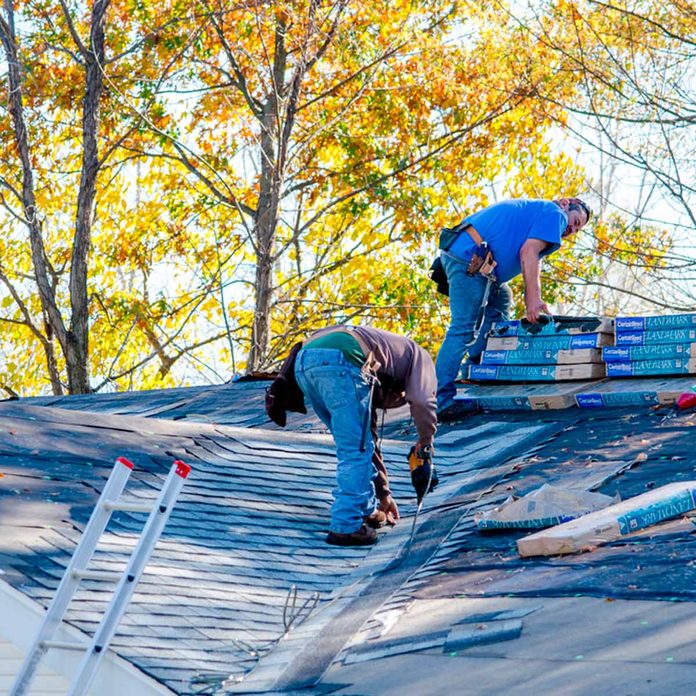 iyd39/Shutterstock
iyd39/Shutterstock
Roofing
Many locations require permits for new roofs, and some even require one for patches over a certain size. You definitely don't want to skip pulling a required permit on this job, as you can easily see roofing work from the street!
Taking a few minutes to check in with your building department before you begin work might save you a lot of aggravation down the road. Once you have the all clear, here's how to roof a house the Family Handyman way.
4 / 13
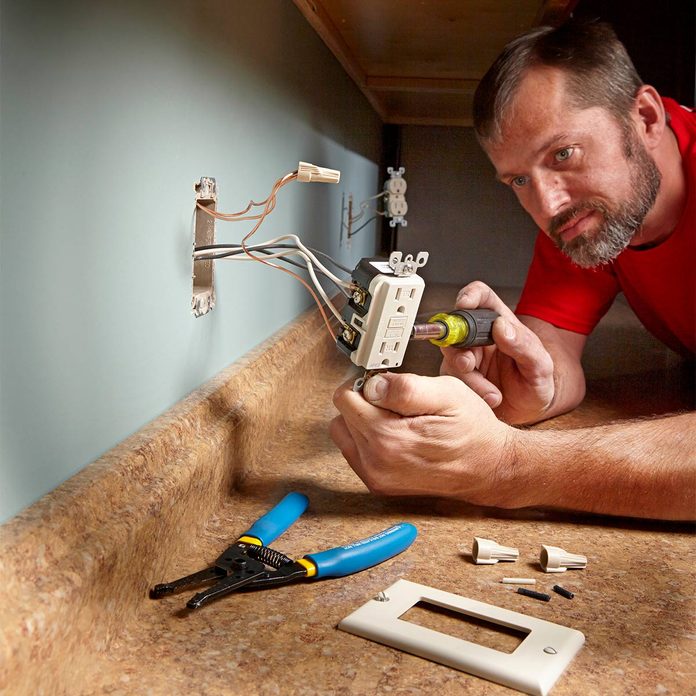
Adding Electrical Outlets
Permit requirements stipulated by stringent municipalities often surprise DIYers doing a bit of basic wiring. Even in states that permit homeowners to work on their own homes, you oftentimes must still pull a permit. As a general rule of thumb, any electrical work that involves working behind the drywall requires a permit.
Take adding an outlet as an example: Although it's not terribly complicated, and many DIYers have the skills to do it right, it may be illegal to do so without a permit. If you put yourself in the building department's shoes, you really can't blame them. After all, if there is an electrical fire, all eyes will be on them.
Need a refresh on electrical basics before installing your outlet? Check out DIY University's Basic Skills for Electrical Projects to hone your electrical skills.
5 / 13
 Family Handyman
Family Handyman
Window and Door Replacement
Adding a new residential window or exterior door where there wasn't one before almost always requires a permit. But did you know that some municipalities require a permit for a straight replacement, as well?
Many building departments simply require that the replacement matches the dimensions of the existing door or window, while others insist on a specific look or material match. Just like roofing, this is another highly visible area on your home, so pulling the necessary paperwork before you start.
6 / 13
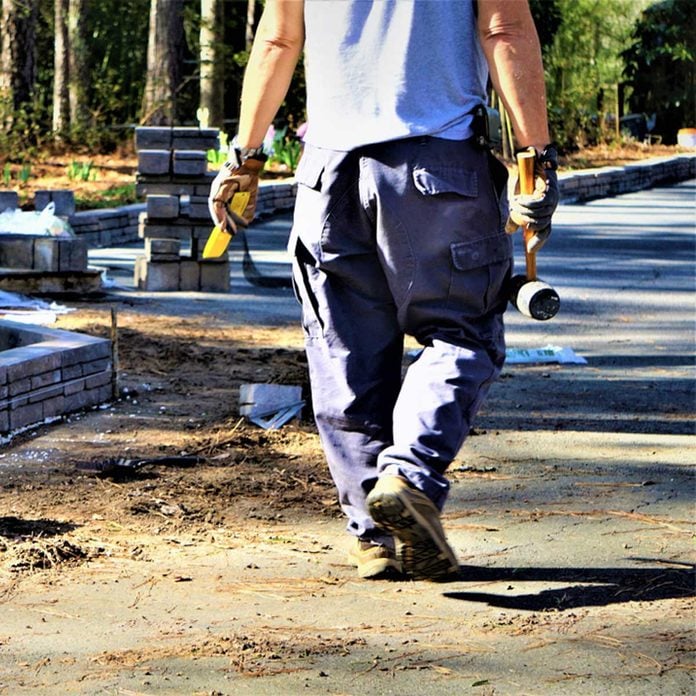 Ancha Chiangmai/Shutterstock
Ancha Chiangmai/Shutterstock
Work in the Right-of-Way
Work in the public right-of-way often requires a permit, to make sure that you're not intruding on city or other residential property. This includes anything involving a sidewalk cut, or work that will obstruct a public alley or roadway.
Essentially, even though the finished product stays within your property boundaries (and becomes your responsibility to maintain), modification of or tying up public space during construction usually requires a street-use permit.
So, dot all your I's and cross all your T's when it comes to filling out the required forms, whether you're running a drain line to the gutter or installing an asphalt driveway.
7 / 13
 Pixelbliss/Shutterstock
Pixelbliss/Shutterstock
Easement Work
Your house does not exist in a bubble! Much like a project that falls into the right-of-way, a project involving the easement (which is the section around your property which can legally be crossed or used for another purpose) often requires a permit.
This ensures you aren't building directly on top of your neighbor's property and reserves sufficient room for city utility service. Some municipalities go so far as to actually require surveys before work is done within a certain distance of your property line, while others will let you by with using the most recent survey on record.
Once again, it is particularly important to have the proper permits for exterior work, as it is visible, and if you are not friendly with your neighbors, easily reported.
8 / 13
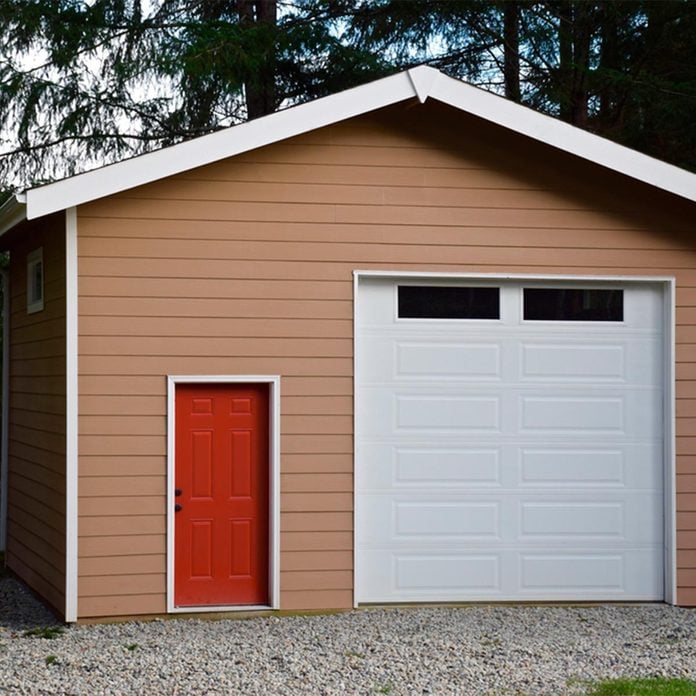 JOHN PAREJO/Shutterstock
JOHN PAREJO/Shutterstock
Sheds
Sheds and outbuildings are usually simple structures. Many municipalities allow construction of them without a permit, so long as they stay within certain guidelines as to height, footprint and distance from property lines. If you decide to run utilities, such as water and electricity to your shed, a permit becomes more likely.
Depending on the climate where you live, and the amount of frost-driven ground heave, requirements for footers or other foundation aspects may exist.
Want to build a new shed, but aren't sure where to start? DIY University offers How to Build a Backyard Shed with an expert available to answer your questions and guide you through the shed building process.
9 / 13
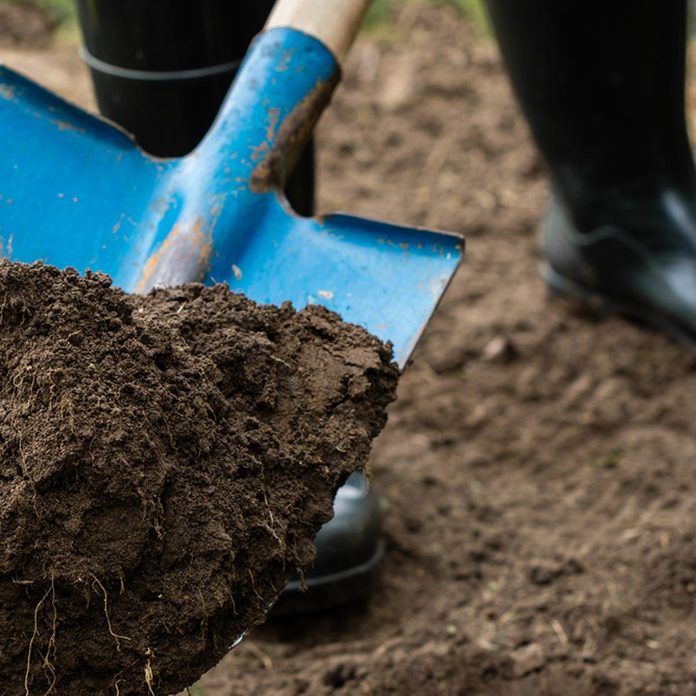 Jurga Jot/Shutterstock
Jurga Jot/Shutterstock
Soil Grading
You've probably noticed that many of these projects that require permits involve exterior work. While many people understand that work in the home may require permits, exterior work sometimes feels more like fun than actual renovation. A great example of this is changing the grading of your property.
Once again, the scope of the work makes a difference. If you spread soil along the side of your home in order to help prevent a damp basement, you're probably fine. If, however, you bring in a truckload of soil to elevate a section of your yard, you're more likely to run into permit issues. This is particularly true if all that diverted rainwater now runs toward your neighbor's basement.
Permits for projects like grading are usually not difficult to obtain. At most, they require a sketch so that city engineers can make sure your plan doesn't create a bigger problem than the one you're solving. As always, play it safe and check to see if a permit is required before starting work. And always call to have underground utilities marked out before you dig.
10 / 13
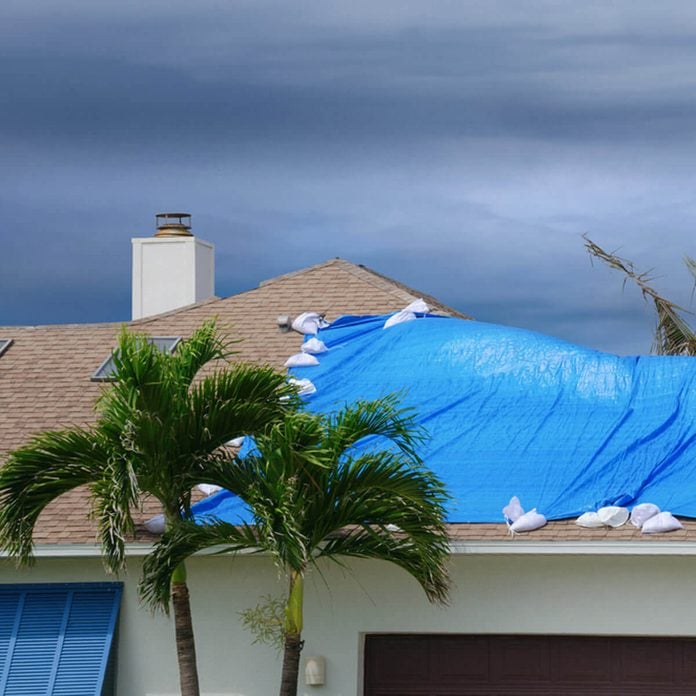 Mike Focus/Shutterstock
Mike Focus/Shutterstock
Emergency Repairs
Almost all municipalities allow for "stabilization" without a permit. In other words, if a tree limb punches a hole in your roof and you patch it with a piece of plywood and a tarp, no one is going to complain.
However, once you're ready to make the permanent repair, you almost always have to go through the regular permit procedure. The good news is that many areas allow for expedited permits for emergency repairs, or even allow work to begin while the permit is still in process.
Again, it's good to remember that the building department is run by human beings who are sympathetic to homeowners in a bad position. As long as you keep them apprised of the situation, you can almost always make the system work for you. (Pro tip: when doing an emergency repair, snap several photos so that you can show why it was needed, just in case.)
11 / 13
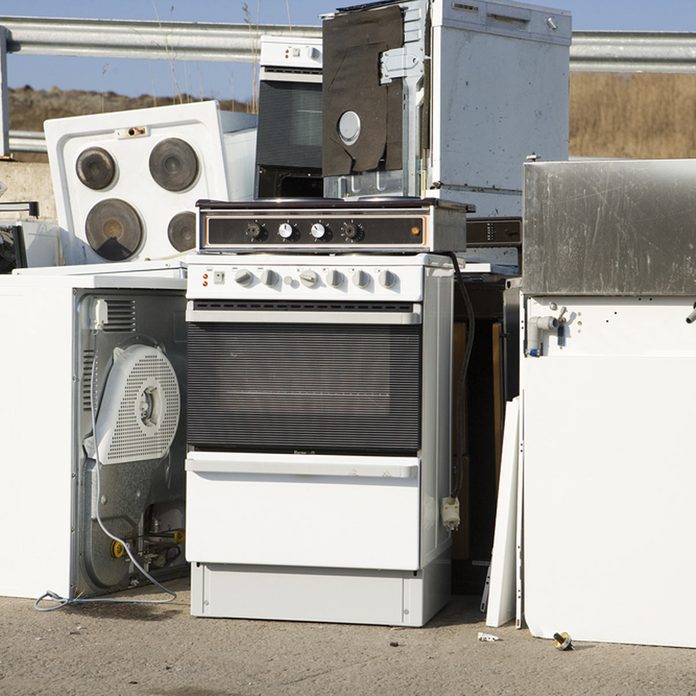 Gemenacom/Shutterstock
Gemenacom/Shutterstock
Gas Stoves
The fact that you need a permit and a licensed plumber to work on gas lines probably doesn't surprise you. After all, improperly installed or repaired gas lines pose a hazard not only to you and your family, but to the entire neighborhood. If you have any doubts, just do an internet search for "gas line explosions" to get a first-hand visualization of how catastrophically wrong sloppy work can go.
It might come as a surprise, however that some cities may even require a permit or licensed installer to install a gas stove onto an existing gas line. These municipalities represent the minority, but they tend to have one thing in common: a gas line explosion happened sometime in their recent past.
Because of the extreme nature and high visibility of a gas explosion, part of the fallout often includes a crackdown on anything that could potentially go wrong. When buying a gas stove, ask the salesperson at the store about the requirements.
Even if your location does not require a permit, if you're not comfortable working on gas lines, it may a good idea to bring in a pro to take care of the installation.
12 / 13
 Family Handyman
Family Handyman
Basements
While a basement remodel is a great DIY project, particularly if it was originally unfinished, it still requires that you go through any necessary permit procedures. It's especially important that you take into account any code requirements about clearance around the electrical breaker box, furnace or other mechanicals.
Going through the permit process cause some pain, but the city's guidelines can save you a lot of headaches (like in avoiding water penetration).
Another great go-to resource is the How to Finish a Basement course with expert instructor Steve Maxwell. Join Steve as he guides you step-by-step through every part of planning and finishing a basement while answering any questions you encounter along the way.
13 / 13
 Artazum/Shutterstock
Artazum/Shutterstock
Decks
Let's close out this list with one more exterior project: A deck. A simple ground-level deck is not complicated nor outside the skill level of most DIYers, but that doesn't mean you won't have to pull a permit before starting work.
Of course, the project's easy accessibility for the inspector helps to speed up the process. The only crucial step before proceeding on this project lies in any required footer inspections.
F amily Handyman has tons of resources to help you build the deck of your dreams, like this article on how to build a solid, frost-proof deck footing.
Originally Published: March 20, 2021
Do You Need Permit For Garden
Source: https://www.familyhandyman.com/list/diy-home-improvements-you-need-a-permit-for/
Posted by: pettitsuded1943.blogspot.com

0 Response to "Do You Need Permit For Garden"
Post a Comment